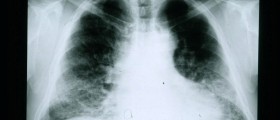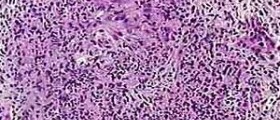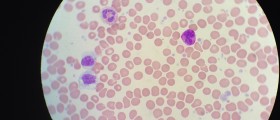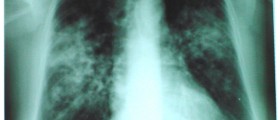
Cyclophosphamide is biotransformed to active metabolites in the liver by a microsomal oxidase system with mixed functionalities. The metabolites affect the growth of malignant cells and cross-link the DNA of the tumor cells.
Hematologic side effects of cyclophosphamide include myelosuppression, leucopenia, anemia, are rare cases of methemoglobinemia and sometimes aplastic anemia. Some women may experience more frequently thromboembolic events. Gastrointestinal side effects are much more common and they include emesis of various severities, anorexia, pain, diarrhea, abdominal discomfort and quiet often vomiting and nausea. There have been some reports of occurrences of jaundice, oral mucosal ulceration and hemorrhagic colitis. Dermatologic side effects of cyclophosphamide quite commonly include alopecia and in rare cases nail and skin pigmentation changes may also occur. These have even been in some cases of toxic epidermal necrolysis and Stevens-Johnson syndrome as well. The medication affects the scalp and it causes hair loss, follicle damage and loss of pubic hair.
In most cases, genitourinary side effects of cyclophosphamide include hemorrhagic cystits. Other genitourinary side effects may or may not include dysuria, renal tubular necrosis, urgency, nocturia, irritative voiding, urinary frequency, incontinence, bladder fibrosis, hemorrhagic urethritis and nonhemorrhagic cystitis. Cyclophosphamide is also known for causing lung injuries in some cases. It induces pulmonary toxicity and it can be further exacerbated by other medications and therapies. Other respiratory side effects may include dyspnea, pulmonary edema, cough fever, abnormal lung sounds, pneumonitis and interstitial pulmonary fibrosis.
Cyclophosphamide can also be the cause of acute cardiac toxicity and sometimes even lead to congestive heart failure. The risk of cardiovascular side effects can be decreased by splitting one’s daily dose into two infusions. The medication can also affect the endocrine system. It can actually interfere with spermatogenesis and oogenesis. It may induce amenorrhea in women and azoospermia in men.
It is also known for causing sterility and hyponatremia in certain cases. Some studies have associated it with ovarian fibrosis and testicular atrophy. Hypersensitivity side effects of cyclophosphamide include delayed-type reactions, anaphylaxis, cutaneous vasculitis and even death. Oncologic side effects of this medication includes secondary neoplasia that mostly affects the patients with underlying lymphoproliferative and myeloproliferative disorders and malignancies. Cyclophosphamide is sometimes used with certain other antineoplastic agents such as carboplatin and cisplatin and this combination sometimes triggers conditions known as peripheral neuropathy and ototoxicity. Other side effects that affect the nervous system includes dizziness, headaches, asthenia and depression.
This medication can also cause rheumatic syndromes and musculoskeletal pains. Sometimes even arthralgias and myalgias can occur.

















Your thoughts on this
Loading...